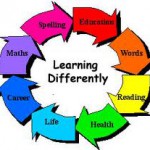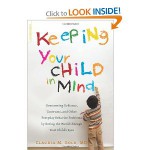Raymond B. Flannery Jr., Ph.D., FACLP, a licensed clinical psychologist, is Adjunct Assistant Professor of Psychiatry, Department of Psychiatry, the University of Massachusetts Chan Medical School. He has also served on the faculties of Harvard Medical School and Boston College. For 10 years, he was Director of Training for the Massachusetts Department of Mental Health […]
By:
Evander Lomke

Twenty years ago I published a book on a topic of national concern: preventing youth violence (Flannery, 2012a). The American Mental Health Foundation (AMHF), with its emphasis on improving mental-health awareness, requested I write two blogs (herewith, in 2019, are these two new essays) on some of the topics in the book. The first blog, from […]
By:
Dr. Raymond B. Flannery Jr.
This is the sixth Annual Report of The American Mental Health Foundation (AMHF), a research organization formed in 1924, incorporated in New York State December 31, 1954. In 2017, AMHF celebrates 93 years of philanthropic service and activities—“Advancing Mental Health: A Century of Excellence in Mental Health Research.” Vision: Building a More Compassionate Society—Get Involved! Mission: AMHF endeavors […]
By:
Evander Lomke

The idea of equal and quality medical treatment for all Americans was promoted by Hillary Clinton in her efforts to overhaul the U.S. healthcare system in 1992-93. Many believe this goal has now been brought to fruition via the Affordable Care Act. But as it is impossible to ascertain every special medical need through legislation, […]
By:
William Van Ornum, Ph.D.

This is film number twenty of twenty-one in the AMHF series, focusing on a range of Hollywood depictions of psychiatry, analysts, and individuals under analysis, from the silent era to the present. (The final film for discussion, an updated version of The Bell Jar, will be included as a kind of “what may be” assuming […]
By:
Evander Lomke

Today’s Washington Post offers yet another article on the effect of (often) well-meaning privacy laws when they are applied to potentially violent persons who are not following treatment guidelines or showing premonitory signs of becoming psychotic along with a chance of potential violence. Wide-ranging privacy laws came into effect under the Health Insurance Privacy and […]
By:
William Van Ornum, Ph.D.

For three days last week American Mental Health Foundation Books shared a booth with its distributor, Lantern, at the annual BookExpo America—which is held at the Jacob Javits Center on New York City’s West Side. (New York remains the publishing capital of North America, even with the multitude of changes the industry has seen.) The […]
By:
William Van Ornum, Ph.D.

As Edward R. Murrow said, there are two sides to every story. Our previous probing into an increase and acceleration in funding for research into the brain waxed positively. A different viewpoint—now taken by major pharmaceutical industries—suggests that their interest in brain research is waning. Reuters reports the following: “Many pharmaceutical companies harbor deep doubts […]
By:
William Van Ornum, Ph.D.

This is the fifteenth movie in the AMHF series of twenty-one. Rain Man won four Academy Awards at the sixty-first Oscars show: Best Picture, Original Screenplay, Director, and Actor—Dustin Hoffman’s second in a remarkable performance. The film revolves around the relationship between a younger, self-centered brother, likewise played to perfection by Tom Cruise, an inheritance, […]
By:
Evander Lomke

This is the thirteenth of twenty-one films in the series on psychiatry in film. The plot summary is provided by Judd Blaise Rovi. New Zealand poet Janet Frame is the subject of Jane Campion’s biographical drama, which presents a poetically evocative look at the author’s turbulent life. The film begins with Frame’s childhood, showing her […]
By:
Evander Lomke

After physicists split the atom, unanticipated positive effects emerged—such as medical isotopes—and many negative ones as well. Where do we store the waste? How do we understand fallout and its deadly effect? What happens when there are nuclear plant accidents? Biologists work in a similar environment as they work to split the genome. Once again, […]
By:
William Van Ornum, Ph.D.
It seems we are reminded every day about posttraumatic stress disorder (PTSD). It reveals itself in soldier suicides, which are occurring in a way that is more than we can bear. Shootings continue. In one city (Chicago), one mother has been so badly traumatized: She has lost four children over the years to street violence. […]
By:
William Van Ornum, Ph.D.

Clint Eastwood in the first-named movie, released over the weekend, is an old-time baseball scout who scours the South in his well-traveled Mustang, attending high-school and minor-league games to find the next baseball phenom—as Mickey Mantle was improbably discovered by Tom Greenwade several generations ago. The Eastwood character knows baseball so well that he can […]
By:
William Van Ornum, Ph.D.

Public Law 94-142, passed by the Congress in 1976, and following legislation including Individual Education Disabilities Act (IDEA), defined different handicapping conditions for which a child could receive additional support (and therefore additional funding) in the public school system. A continuum of extra supports was initiated. This could range from being in a smaller class […]
By:
William Van Ornum, Ph.D.

Big Brothers Big Sisters is a national organization which matches volunteers to children who could use a supportive adult in their life. Children in foster care, in single parent families, children with an incapacitating illness–are the kinds of youngsters who might be given priority status. The sponsoring agency has been known to do a careful […]
By:
William Van Ornum, Ph.D.

On June 22 it was announced that Judith Wallerstein, 90, had died. Wallerstein is known for a 25-year longitudinal study about the effects of divorce on children. Her study examined the psychological impact of divorce on children, and her scientific findings cautioned against the too-ready “advice” of many mental-health professionals that divorce could be a […]
By:
William Van Ornum, Ph.D.

Friends at the International Bipolar Foundation are sponsoring an important lecture on June 14, 2002. If you live near San Diego you might consider attending. For others, the lecture will be archived on the Web site…. Join us Thursday, June 14, for our free monthly mental health lecture with guest speaker Dr. Lisa Eyler. Dr. […]
By:
William Van Ornum, Ph.D.

Many years ago, in the little neighborhood where I grew up in Chicago, the Memorial Day parade was a major event. Not only did it mark an unofficial beginning of summer, it was an opportunity to see veterans from many wars, marching together, and being honored by the entire neighborhood. The soldiers who had served […]
By:
William Van Ornum, Ph.D.

This is the fifth of twenty-one films in the AMHF series of blogs. Charly is a controversial film, about mental retardation and psychiatry. The central controversy revolves around the question, “What is a human being?” Are individuals challenged by developmental delays “to be cured?” Are they not soulful, “whole individuals”? What would be the role […]
By:
Evander Lomke

There are occasions when a child will need to be tested—not by a school or clinical psychologist, but by a neuropsychologist. This occurs when a child displays a brain-based disorder, which can mean an entire spectrum of disorders. Learning disabilities, developmental disabilities, head injuries, cancer, and even gunshot wounds are among the kind of problems […]
By:
William Van Ornum, Ph.D.

On May 2, 2012, it will be sixty-five years since release of Miracle on 34th Street. But the film is hardly ready for retirement. It is one of twenty-one movies identified by AMHF for discussion relevant to the Foundation mission statement. Released one year before Dr. Stefan de Schill assumed directorship of research at AMHF, […]
By:
Evander Lomke

What Freud called “free floating anxiety” is now known in the DSM-IV TR as Generalized Anxiety Disorder. It’s excessive worry that can’t be controlled by the person who is experiencing it. Symptoms may include restlessness, fatigue, difficulty concentrating, irritability, tension, and sleep disturbances; when several of these reach the point of interfering with an important […]
By:
William Van Ornum, Ph.D.

Many people still have the idea that psychological testing is mostly practiced in clinics and hospitals, and have images of psychologists sitting with clipboards giving Rorschach Inkblot tests and intelligence tests. In actuality, most psychological testing is now done in schools, and it has a preventive function: to identify mental retardation, learning disabilities, emotional disorders, […]
By:
William Van Ornum, Ph.D.
The American Psychological Association has announced, in the January 2012 issue of American Psychologist, “Guidelines for Assessment of and Intervention With Persons of Disabilities.” This document lists twenty-two practice-guidelines for psychologists who work with persons displaying disabilities of various kinds. The task force for this report was chaired by Kurt F. Geisinger of the University […]
By:
William Van Ornum, Ph.D.
Susan Cain, a corporate lawyer, has just published a book Quiet: The Power of Introverts in a World That Won’t Stop Talking. She writes: “Imagine a two-year-old who greets you with a huge smile, offering a toy. Now here’s another child who regards you gravely and hides behind his parent’s leg. How do you feel […]
By:
William Van Ornum, Ph.D.
The December 22, 2011, edition of the New York Times brings out another article on the problems and abuses in New York State public groups homes where developmentally disabled persons reside. It is important to note that the focus of the NYT articles has been on “public” rather than private group homes. Many of the […]
By:
William Van Ornum, Ph.D.
From the 14th edition of Abnormal Psychology by James N. Butcher, Susan Mineka, and Jill M. Hooley (Boston: Allyn and Bacon): “The concept of mental disorder, as we have seen, suffers from the lack of a truly objective means of what is disordered and what is not. It is also in the financial interests of […]
By:
William Van Ornum, Ph.D.

On Friday, October 28, 2011, AMHF attended the 17th Annual Meeting of the Northeast Conference for Teachers of Psychology. This is a group of psychologists, who teach in colleges and universities, dedicated to improving their teaching of undergraduates and graduates. Participants of the group come from a wide range of specialties and interests including developmental, […]
By:
William Van Ornum, Ph.D.

Claudia M. Gold, MD, is a behavioral pediatrician who writes for the Boston Globe. She offers some excellent thoughts on the topic of psychiatric medication and children: “In the last chapter of my new book Keeping Your Child in Mind: Overcoming Defiance, Tantrums, and Other Everyday Behavior Problems by Seeing the World through Your Child’s […]
By:
William Van Ornum, Ph.D.
The Bayley Scales of Infant and Toddler Development III (BSD III) are an important tool for measuring the cognitive, motor, and sensory development of the very young. But why is there a need to test infants and small children? We may even recoil from this process, thinking that early testing and assessment may imprint a […]
By:
William Van Ornum, Ph.D.
1
2
Next »






























 Host Companion
Host Companion